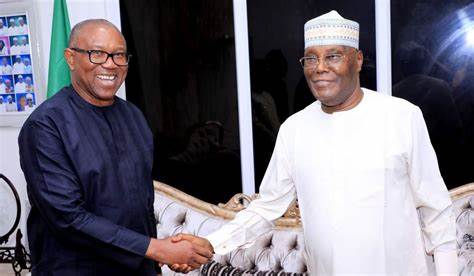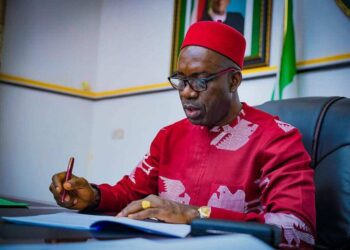A brewing disagreement has emerged within the opposition coalition against President Bola Tinubu’s reelection bid, with key stakeholders led by former Vice President Atiku Abubakar and Peter Obi divided over whether to establish a new political party or merge with existing platforms ahead of the 2027 general elections.
The internal debate is creating uncertainty within the coalition as opposition leaders struggle to present a unified front against the ruling All Progressives Congress (APC) in what promises to be a highly competitive electoral contest.
Sources within the coalition reveal that members are deeply split on strategy, with some advocating for the creation of an entirely new political platform while others favor merging with one of the existing registered parties. The disagreement has intensified discussions about returning to the collaborative model previously employed by the now-defunct Alliance for Democracy (AD) and All Peoples Party (APP), which successfully fielded single candidates to represent unified opposition interests.
The League of Northern Democrats (LND) convener, Umar Ardo, provided some clarity on Friday regarding the coalition’s approach, confirming the group’s commitment to supporting the National Opposition Coalition Group for the 2027 elections. Ardo announced that extensive dialogue would focus on the critical decision of whether to register a new political party or align with an existing one.
To address these fundamental strategic questions, the National Coalition Group has established two specialized committees tasked with exploring both options. The first committee, under the leadership of former Cross River State Governor Liyel Imoke, will examine the feasibility and logistics of merging with another established political party. Meanwhile, the second committee, chaired by former Rivers State Governor Rotimi Amaechi, will assess the practicality and requirements for registering a completely new political party to serve the coalition’s interests.
However, the coalition’s deliberations took an unexpected turn when Ralph Nwosu, national chairman of the African Democratic Congress (ADC), made a unilateral announcement claiming that the ADC had been selected and agreed upon as the platform for the entire coalition. This declaration has created significant disruption within the opposition camp, with various stakeholders expressing concern and surprise over what they perceive as a premature and unauthorized decision.
Nwosu’s announcement has been met with skepticism from coalition members who view it as an attempt to position the ADC ahead of other potential platforms, including the Social Democratic Party (SDP), which is reportedly being promoted by former Kaduna State Governor Nasir El-Rufai.
Adding another layer of complexity to the negotiations, Peter Obi, who was the Labour Party’s presidential candidate in the 2023 elections, has firmly stated his intention to contest the 2027 election on the Labour Party platform, effectively distancing himself from any alternative coalition arrangement.
A source familiar with the ongoing negotiations expressed surprise at Obi’s definitive stance, noting that such categorical statements could undermine the delicate consultation process currently underway. “While one considers the pronouncement by the ADC chairman as pushing forward his platform to be considered ahead of the Social Democratic Party, SDP, being promoted by former Kaduna State governor, Nasir El-Rufai, Obi’s statement came as a surprise,” the source revealed.
The source further highlighted the contrast in approach between Obi and other coalition leaders, particularly noting that unlike Obi’s public insistence on the Labour Party, former Vice President Atiku Abubakar has refrained from making similar categorical statements about the PDP in his public engagements.
However, the source suggested that Obi’s position might be strategically motivated, explaining that “my reading of the situation is that Obi is probably seeking to negotiate from a position of strength, having learned the political game over the years.”
The Labour Party itself faces significant internal challenges that could complicate Obi’s plans, with up to three different factions currently claiming legitimate leadership of the party. This internal crisis raises questions about the viability of the Labour Party as a stable platform for the 2027 elections.
The ongoing disagreements within the opposition coalition highlight the challenges facing efforts to present a united front against President Tinubu’s expected reelection bid. As consultations continue, the coalition’s ability to resolve these fundamental strategic differences will likely determine its effectiveness in challenging the ruling party come 2027.
With the general elections still over two years away, coalition members acknowledge that time remains for further negotiations and potential compromises. However, the current divisions suggest that achieving unity among the diverse opposition groups may prove more challenging than initially anticipated.




















